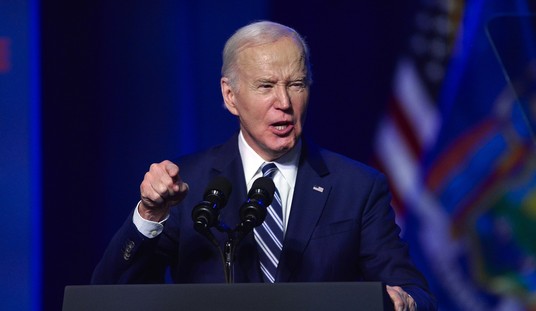In today’s Washington Post, noted poseur and presumed future WaPo editor Ezra Klein takes a shot at Republicans for daring to challenge the patently phony Congressional Budget Office scoring of Obamacare.
For instance, Klein rails against GOP insistence that “doc fix,” that is, increasing Medicare payments to physicians, be considered part of Obamacare even though it is included in the bill because, he reasons, Republicans imposed the cap in 1997 and they are just trying to use the price of removing the cap as a reason to repeal Obamacare.
He also claims that the CBO is the last thing standing between the Republic and fiscal Armageddon and if lawmakers have the temerity to take the CBO to task over obviously contrived scoring then we all lose. In Klein’s world playing poker with a crooked house dealer is better than playing with no dealer at all.
According to Klein:
You can play whack-a-mole with this stuff all day. But beneath it is something more insidious: an effort to discredit the last truly neutral, truly respected scorekeeper in Washington. The facts don’t support the particular case the Republicans want to make, so they’re trying to take down the people who supply the facts. But once that’s done, it can’t easily be undone. And the true loser will be the very thing Republicans claim to care most about: the deficit.
Charles Krauthammer sums up the CBO scoring argument best:
Suppose someone – say, the president of United States – proposed the following: We are drowning in debt. More than $14 trillion right now. I’ve got a great idea for deficit reduction. It will yield a savings of $230 billion over the next 10 years: We increase spending by $540 billion while we increase taxes by $770 billion.
Klein belabors various conservatives for saying Obamacare is full of gimmicks and “blue smoke and mirrors” when, in fact, it is.
For instance, again drawing from Krauthammer’s column:
…Most glaringly, the entitlement it creates – government-subsidized health insurance for 32 million Americans – doesn’t kick in until 2014. That was deliberately designed so any projection for this decade would cover only six years of expenditures – while that same 10-year projection would capture 10 years of revenue. With 10 years of money inflow vs. six years of outflow, the result is a positive – i.e., deficit-reducing – number. Surprise.
If you think that’s audacious, consider this: Obamacare does not create just one new entitlement (health insurance for everyone); it actually creates a second – long-term care insurance. With an aging population, and with long-term care becoming extraordinarily expensive, this promises to be the biggest budget buster in the history of the welfare state.
And yet, in the CBO calculation, this new entitlement to long-term care reduces the deficit over the next 10 years. By $70 billion, no less. How is this possible? By collecting premiums now, and paying out no benefits for the first 10 years. Presto: a (temporary) surplus. As former CBO director Douglas Holtz-Eakin and scholars Joseph Antos and James Capretta note, “Only in Washington could the creation of a reckless entitlement program be used as ‘offset’ to grease the way for another entitlement.” I would note additionally that only in Washington could such a neat little swindle be titled the “CLASS Act” (for the Community Living Assistance Services and Supports Act).
When one looks at Klein’s objection to the inclusion of “doc fix” (analyzed in detail here) one finds that the Democrats tried to include a permanent “doc fix” but the CBO said it would increase the deficit by about $20 billion a year. So a temporary extension was included in the bill.
National Review’s James Capretta has much more. And Klein’s specious objection to the inclusion of “doc fix,” though I really should say Paul Krugman’s specious objection because all he does is take dictation in this case, is deconstructed in detail by National Journal’s Yeval Levin.
So the question isn’t really about whether or not gimmickry was used to make an monumentally expensive program look affordable, even fiscally prudent, over the short term, it most assuredly was. The real question is why CBO is allowed to participate in this institutional deceit and as it does why the CBO numbers should be given any weight in policy making.
According to Krauthammer:
Of course, the very numbers that yield this $230 billion “deficit reduction” are phony to begin with. The CBO is required to accept every assumption, promise (of future spending cuts, for example) and chronological gimmick that Congress gives it. All the CBO then does is perform the calculation and spit out the result.
There it is. The CBO is a creature of the Congress, more specifically a creature of the majority party in Congress. While this was just as true under the GOP as under the Democrats it is the Democrats who seem to better understand how to use the CBO as a tool. And one can safely presume that the sympathies of the CBO staff, like those of most of the federal workforce, are much more closely aligned with the Democrats.
The idea that is is an impartial referee is a polite fiction. In developing this bill, as National Review’s Capretta — linked to earlier — notes the CBO ignored the projections of the chief actuary of the Center for Medicare and Medicaid Studies who, by law, is responsible for providing those projections in order to find a number that would allow Obamacare to meet fiscal targets.
CBO scoring, as presently instituted, is little more than a sham. In the case of Obamacare, the scoring was a sham willingly participated in by the CBO. If the CBO is going to continue to score legislation for fiscal impact it should be reformed so the results accurately portray lifecycle costs of programs. Otherwise the CBO should get out of the business of providing bogus numbers to support legislation.













Join the conversation as a VIP Member